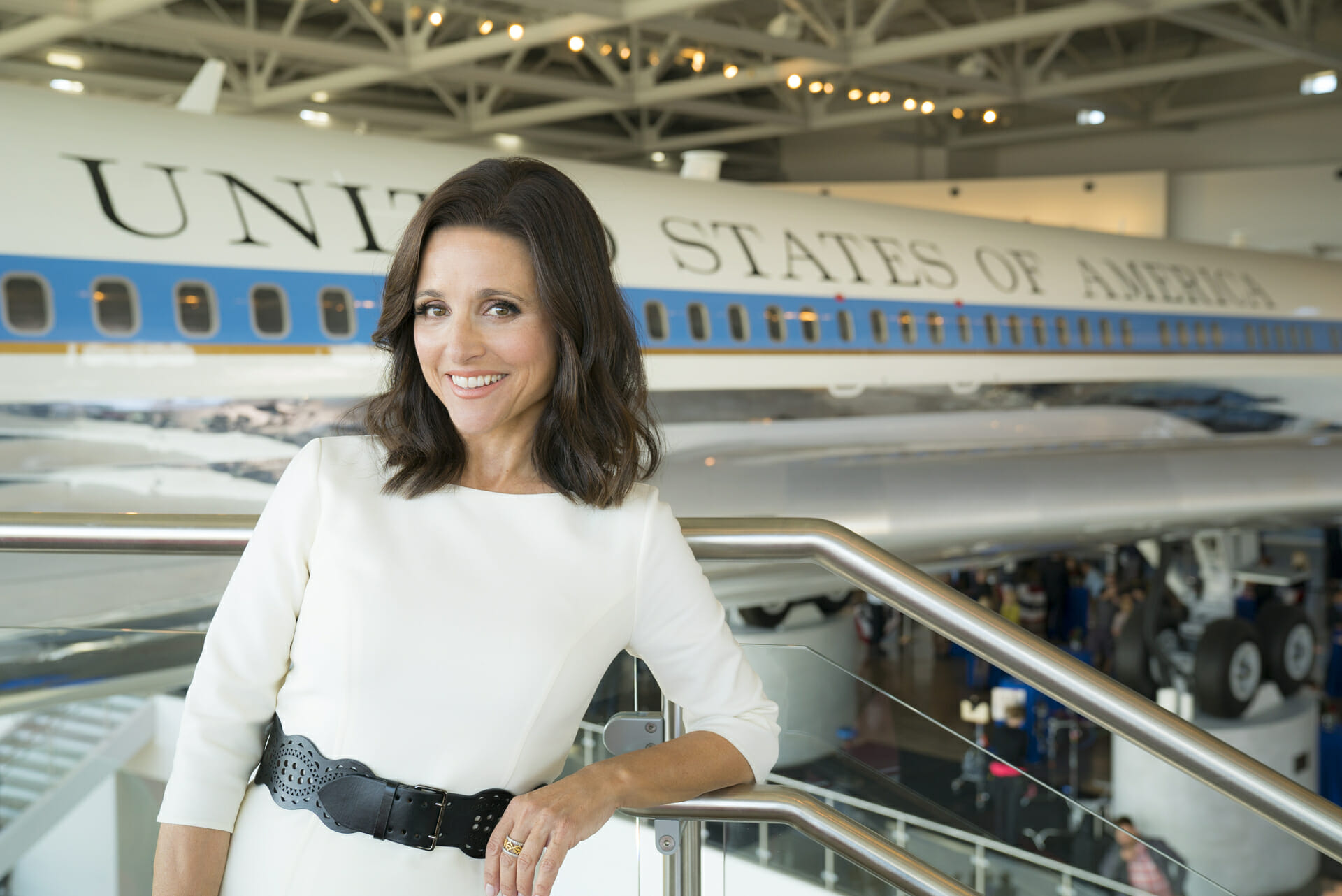
VEEP | A female vice-president? Not fiction anymore
Creator
Year
Country
Seasons
Runtime
Genre
Subgenre
2012. Barack Obama wins the US Elections and chooses Joe Biden as his vice-president – who has now himself become the current President. That same year, VEEP, an HBO television series, started. It told the story of a woman who becomes the vice-president of the United States.
2020. Joe Biden chooses Kamala Harris as his deputy, making her the first woman to enter the White House. Finally, a female vice president is no longer fiction.
Not a status quo
It is possibly to be regretted that VEEP represents everything that does not work in American politics, but especially in people who practice politics; always too focused on money, power and fame as Frank Underwood of House Of Cards, or too much about themselves, as Payton Hobart in The Politician.
The series is an adaptation of the English comedy series The Thick of It, conceived by Armando Iannucci. The protagonist is the politician Selina Meyer (Julia Louis-Dreyfus) with her continuous gaffes, her outbursts, and sudden repentances, vulgar language. She’s far from the classic image of the American ruling class. With President Bartlet of The West Wing, and his moral toughness, Selina would be out of a job within minutes.
Tired of being overshadowed by the President, she wants to get to the Oval Office along with her staff. They are a bunch of alcoholic advisors, inept spokesmen, neurotic assistants, and treacherous bearers, even more, incapable than she is.
Reverse the stereotype
VEEP’s narrative style, known as cinéma-vérité, is similar to a mockumentary series like The Office. The viewer may also find similarities between Selina and Michael Scott: their underlying inadequacy is the same.
The contrast between fiction and reality is given not so much by the fact that they are all almost incapable, but it is all the more stringent when the proposed female figure does not correspond to the inverse stereotype of a perfect and super-efficient woman. Selina often and willingly fails in everything she does but her flaws make her even more familiar and special. As if the goal was to show that women should have the same identical possibilities as men, even in being useless.
The smaller moments, the scathing blink-and-you’ll-miss-them make this show what it is; a lot of shows can be funny, but over the years VEEP has turned its relentless insults and incredible reaction shots into an art.
One of VEEP’s strengths is its ambiguity in giving a clear message and taking sides. For years now, there has been a debate to identify Selina’s political belonging. Democratic or Republican, no one knows; its brutally accurate depiction of the idiocies and contradictions of the political culture has a crucial role in itself, it doesn’t need a side.
A powerful female character
After seven seasons – in 2019 – the series ends and audiences consider it a real underrated jewel, although the list of awards it won would say the opposite. VEEP was nominated for four Best Comedy Emmy Awards and won in 2015. That same year, it won the Emmy for Best Screenplay and the Best Casting of a Comedy Series. In addition, Julia Louis-Dreyfus (former star of Seinfeld) won six consecutive Emmys as Best Actress in a Comedy Series, and two Golden Globe nominations in the same category.
This record makes her one of the female performers with the most Emmy Awards of all time. Here‘s an interview with Vanity Fair about Louis-Dreyfus’s career and roles, which brought her to win the Mark Twain Prize in 2018.
Tag
Buy a ☕ for Hypercritic








